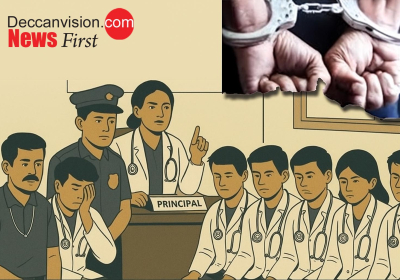Medical Students in Cannabis Net – A Crisis in the Making

Hyderabad is facing a disturbing reality—those we trust to safeguard our health tomorrow are themselves falling prey to a dangerous addiction today. The recent revelations by the Eagle (Elite Action Group for Drug Law Enforcement) have shaken the city’s conscience. Out of a customer list of 82 names recovered from two cannabis peddlers, 32 belong to Medical College students. These are not random delinquents—they are future doctors, entrusted with lives, yet now entangled in a web of drugs.
The facts are chilling. Of the 24 medical students tested, nine—two of them women—were found positive for cannabis. All were hostel residents. They now find themselves in de-addiction centers, their careers hanging by a fragile thread. This is not just a question of personal failure; it is a question of public trust, professional ethics, and the moral backbone of our future healthcare system.
The drug trail is equally alarming. Peddler Arafat Ahmed Khan of Secunderabad sourced cannabis from Zarina Banu of Bidar, Karnataka. Arafat specifically targeted medical and engineering students in the city’s suburbs. His arrest earlier this month, along with the seizure of two kilograms of cannabis, led investigators to Zarina—who had built an astonishing network of 51 peddlers across Hyderabad, moving drugs worth ₹1.5 crore in a year. This is not petty dealing; this is organized, systematic poisoning of our youth.
If this is the state inside medical campuses, we must ask: how deep does the rot go? Are our institutions failing to detect and deter such abuse? Are families unaware—or unwilling—to confront the truth? A society that allows its healers to turn into addicts risks eroding the very foundation of public health.
This is no time for silence. Educational institutions, law enforcement, parents, and civil society must act in unison. Routine drug testing, strict disciplinary action, and aggressive anti-narcotics awareness are not optional—they are essential.
Because if we lose the doctors of tomorrow to drugs today, the prognosis for society itself will be terminal.
- Editor








